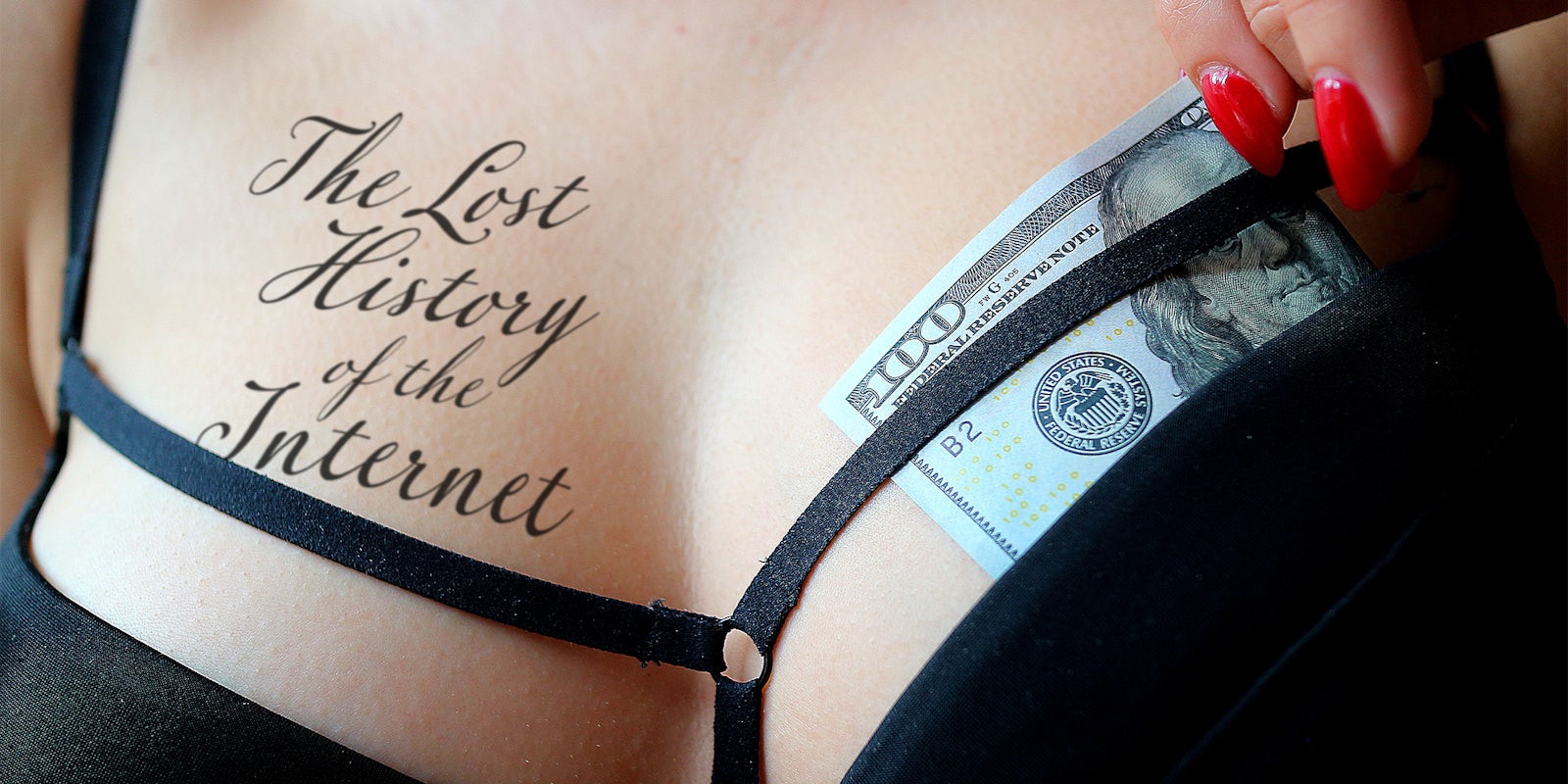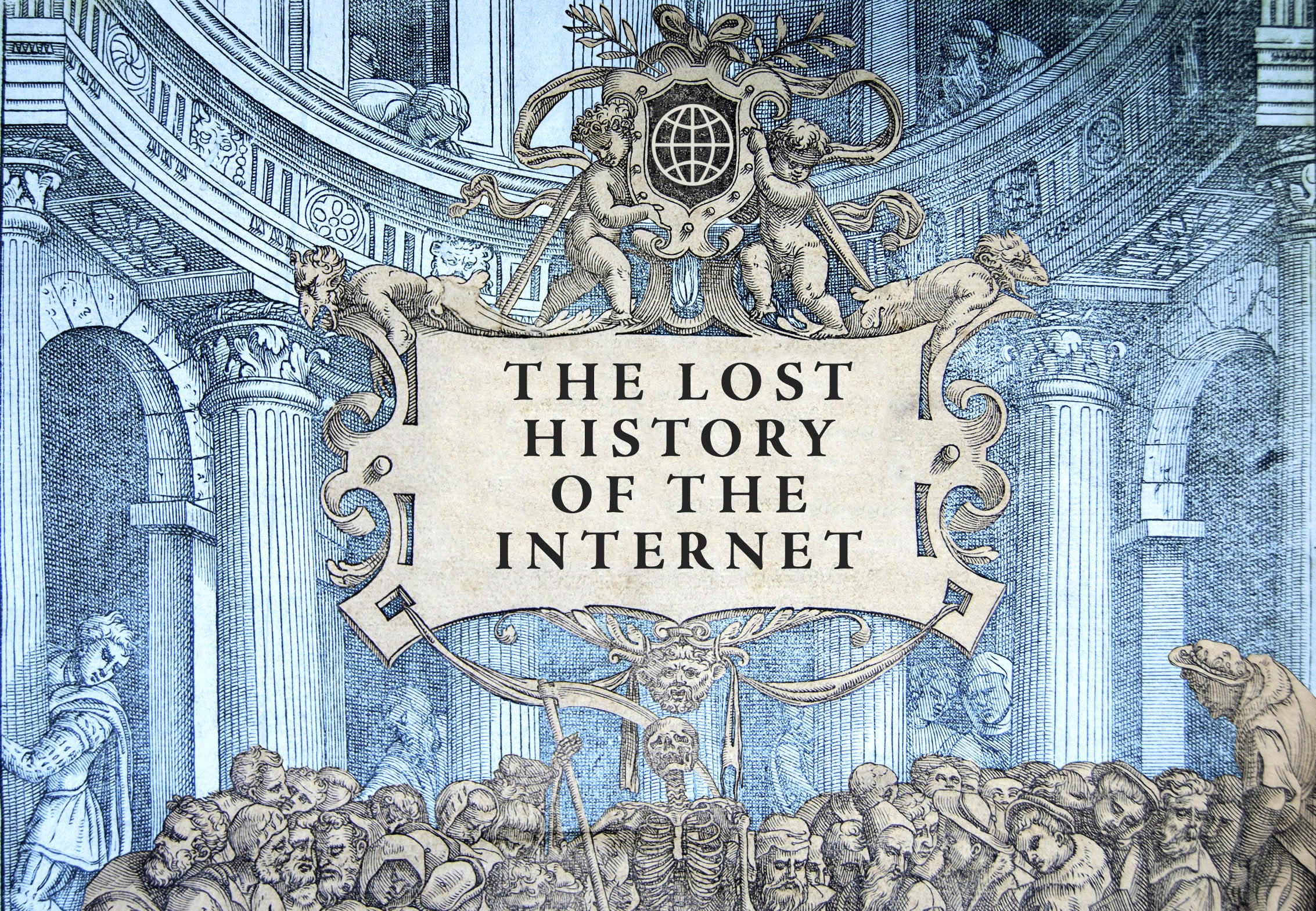With OnlyFans’ recent ban-then-reversal on sexually explicit content, it’s clear that sex work on the internet is still a work in progress. We spoke to Lindsey Normington, an actress and a producer on virtual strip club Cool Cats Online, about online sex work pre-OnlyFans, and what the future may hold for the industry as the world continues to digitize.

The Daily Dot: What can you say about the early era of sex work online?
Lindsey Normington: [From the early 2000s] up until 2018, things were a lot more lax. People didn’t run into a lot of trouble advertising sexual services/content on platforms [even in the early days of] Instagram, Reddit, etc. After FOSTA-SESTA went into effect, censorship became far more rampant across most websites—case in point, [Cool Cats Online’s] Instagram page getting deleted. We can’t even use keywords like “stripper” or “lapdance…” Nothing’s being reported, [platforms are just] built now to remove any content that could be sex work or sex trafficking adjacent. To them, there’s no distinction between the two.
How is the landscape for sex work online changing as it moves from primitive technologies (i.e. phone sex and cam work) to a more app-based world?
[App culture] has really forced people into a box. Not only is OnlyFans an app, but it’s a major brand at this point. There is a particular style associated with [sex work on apps]. Every club, app, or online platform (phone sex, cam shows, escort services, etc.) have always had their rules, and working within those parameters has always been something we’ve had to deal with…with the rise of AI software that can detect and delete certain “unsavory” content in a blip, I worry about the so-called freedom that is supposed to be allotted to independent, online workers… I’ve seen that type of thing happen in the clubs in Los Angeles. I used to feel like I could work almost anywhere because every club had all these different types of girls and that was the point. Now I see clubs and online work like OnlyFans becoming more and more niche!
To go with a biblical metaphor, do you think OnlyFans is the B.C./A.D. of how society has viewed online sex work through time?
OnlyFans has brought sex work out of the shadows in a way that I hadn’t seen anytime before it came along! When I used to tell people I was a stripper, they sometimes could seem shocked. Now, I feel like it’s been partially normalized to a lot of people…[they] have the misconception that [today’s online] sex work is really easy, and everyone doing it is making buckets of money. I also think that people can have the perception that [online work like] OnlyFans is a sort of standard for sex work now. It is sex work, but it’s a lot safer and more sanitized than street work and other [previous modes of] work that involve actual bodies touching. It’s important to not erase other workers out there just because one form may seem more palpable!
Any idea on where online sex work may be going forward? Sex Robots?
One of my favorite depictions of sex work “in the future” I’ve seen would probably be in the graphic novel Alienation by Ines Estrada. She depicts the character Eliza paying rent in a post-climate change world by performing VR cam shows that basically stream directly from the chip in her brain to yours. I can see at least elements of that becoming a possibility in the future.
How did you get your start in sex work?
I did stuff online [like] sell underwear on Reddit, that was a fun adventure. I started dancing years ago [but] just this past year I have begun helping produce these online shows. Last year, I began performing in them. This year, I took on a producer/showrunner role with Cool Cats Online.
What is it like being the front-runners of the virtual strip club culture you started?
@susanbsketchy describes it as a strip club meets late-night talk show. Since we haven’t had [outside] pressure on us, people do all kinds of great things on the show. People have performed music, done these crazy costumes and gags. Even narrative story pieces combined with stripping and dancing!
We don’t have to be under the management of any men…[brick and mortar] strip clubs have arbitrary rules… things that just don’t make sense to things that are super racist. No rap music, you can’t wear this, you can’t dance this way, no heel-clicking…. We are also able to draw in crowds of people that would feel out of place or uncomfortable going to a strip club. They are able to enjoy that without putting themselves in an environment where they might feel out of place.
But one drawback: It’s a lot harder to cull customers. When you’re working in a club on Hollywood Boulevard, you have people who are walking around drinking who are just like, ‘Oh my God, let’s go in here.’ Some of these places have, like, 50-year reputations, and [online] we’re really just depending on friends and people who we’re contacting. Money-wise, it has not been as good. People who do individual work can make a lot of money doing a lot of different things, but as far as dancing online, it’s missing that social element of… touch and throwing money and looking like a baller. When we’re depending on people to tip on Cash App or Venmo or whatever, it’s very anonymous.
COVID-19 has made many occupations take a mass exodus from on-site to online. What did this look like for sex work?
Even before the pandemic, there was AB-5 that was passed in California which made it so all dancers had to be employees instead of independent contractors. What they did was just enact all of these illegal, shady kinds of business practices, like, “we’ll pay you $15 an hour, but you have to pay us your first five private dances. And then half of your dance money on top of that.” [We’re] missing hundreds of dollars a night compared to what we were making before.
Technically, as employees, we would be able to have benefits, but you could only work 10 hours a week so they wouldn’t be obligated to provide any benefits. Those of us that started and produced Cool Cats Online worked at Cheetahs. Our club just fired us all one day because they couldn’t afford to keep pay-rolling the girls. They turned the club over to new management, and that was the end of us. And then we couldn’t go anywhere else… [at every club,] people were getting fired left and right, and we moved online.
There has long been the stereotype of the isolated sex worker, and the age of the internet is also the age of the loner. While it sounds counterintuitive, would you say the move to the internet has involved even more community?
I didn’t really know most of my coworkers before, because I was really about doing my job, and getting money, and kind of working on my own. And since I’ve started working with them on this, they’ve become my really good friends! [Now] it just feels way more like a team and like a healthy working environment. There’s so much that wasn’t encouraged of me before, or that I thought wasn’t possible.


